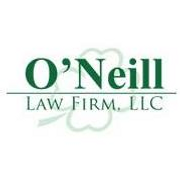
If you’re struggling to keep up with minimum payments and actively dodging creditor calls, it might be time to consider a debt relief solution. However, many people have misconceptions about bankruptcy or aren’t sure how to move forward. When you’re ready to meet with a bankruptcy attorney, use the following answers to learn more about the process.
4 FAQ About Bankruptcy Law
What Is Bankruptcy?
When you file for bankruptcy, you’ll submit yourself to a federal court procedure, of which the aim is debt relief. However, not all types of bankruptcy use the same methods to achieve this goal. For example, Chapter 13 bankruptcy requires individuals to agree to an updated payment plan, allowing them three to five years to pay back their debts. Chapter 7 completely wipes out your debts, so you can start over with a clean slate.
Which One Is Right for Me?
While Chapter 7 might seem like the more attractive option, it’s much less forgiving than Chapter 13. For example, while Chapter 13 gives debtors a chance to hold onto their property, Chapter 7 sells them to pay back your creditors.
Also, while Chapter 13 bankruptcy will allow your credit score to bounce back faster, as you’ll eventually pay off your debts. When you move forward with Chapter 7, it will be much harder and take a lot longer to rebuild your credit.
Will It Stop Creditors From Contacting Me?
 Both types of personal bankruptcy will trigger an “automatic stay” when you file. This means the court will forbid credit card companies, loan officers, and other creditors from bombarding you with letters, emails, and calls daily. However, the debts that can’t be wiped out with bankruptcy—such as alimony, taxes, and child support—won’t be included in this protective order.
Both types of personal bankruptcy will trigger an “automatic stay” when you file. This means the court will forbid credit card companies, loan officers, and other creditors from bombarding you with letters, emails, and calls daily. However, the debts that can’t be wiped out with bankruptcy—such as alimony, taxes, and child support—won’t be included in this protective order.
Can I Still Open Credit Cards?
Since bankruptcy is a forgiveness program for falling behind on what you owe, credit card companies will be hesitant to issue you new lines of credit in the years immediately following. If you can open a new card, you may be required to cover high minimum payments and subject to extreme interest rates. After bankruptcy, the best option is to open a secured credit card, where you provide the money for your own balance, so you’re only borrowing against yourself.
If you’re interested in filing, turn to O'Neill Law Firm, LLC of La Crosse, WI. The experienced bankruptcy attorneys will try to make Chapter 13 work for you, so you can hold onto your property and avoid a lasting blow to your credit. In addition to debt relief cases, they also work in family law and can help you through every step of the divorce process. To learn more about their practice areas, visit the website or call (608) 519-3551 to schedule an appointment with a bankruptcy attorney.
About the Business
Have a question? Ask the experts!
Send your question

